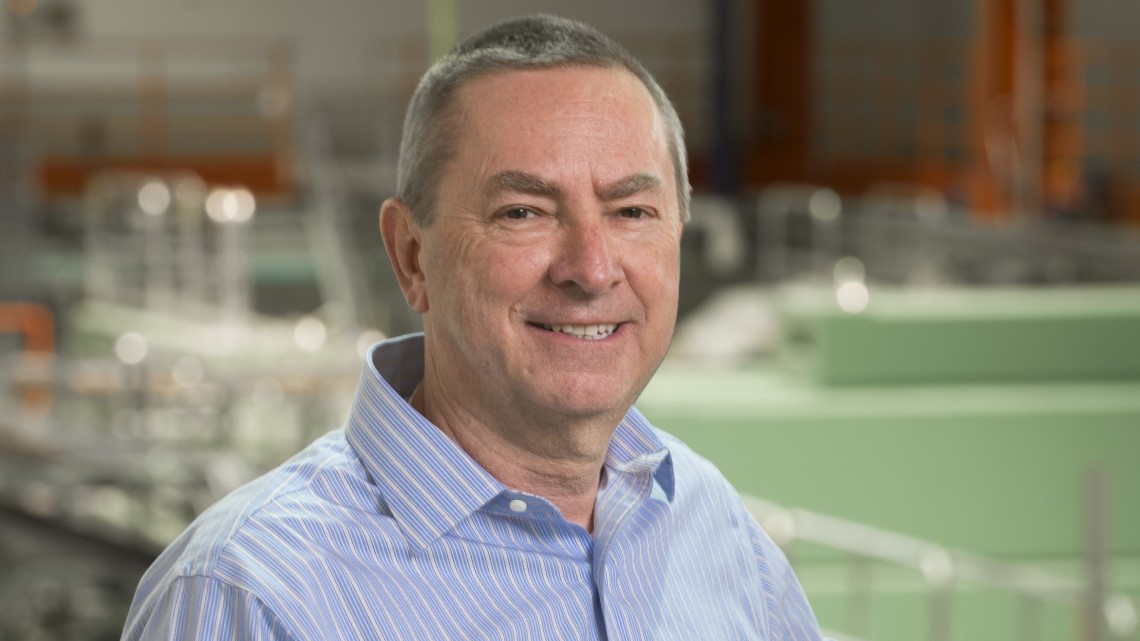
News directly from Cornell's colleges and centers
Nigel Lockyer named new director of the Cornell Laboratory for Accelerator-based Sciences and Education
By Rick Ryan
Nigel Lockyer, an accomplished physicist and laboratory leader, has been selected as the new director at the Cornell Laboratory for Accelerator-based Sciences and Education (CLASSE). Lockyer comes to Cornell with a wealth of experience in physics and accelerator sciences, having most recently served as the director of the Fermi National Accelerator Lab (Fermilab) in Batavia, Illinois.
Lockyer's appointment starts on May 1, and comes after an extensive national search led by a committee of faculty members from several colleges and CLASSE staff. His expertise and experience in accelerator physics and high-energy particle physics will be invaluable to CLASSE as it continues to advance its cutting-edge research in these fields.
"I am very pleased that Nigel Lockyer will be joining us at Cornell as the new director of CLASSE. His leadership, expertise, and vision will be critical as Cornell continues to advance the research and education programs in accelerator-based sciences," said Krystyn Van Vliet, vice president for research and innovation at Cornell. "Under Nigel’s direction and leadership, CLASSE will continue to be a world-class research facility and a leader in the field."
With roughly 300 researchers and staff, and over 30 graduate students, CLASSE is a federation of research centers that leverage shared scientific, technical, and administrative expertise and infrastructure. The largest of the research projects is CHESS, which oversees and operates CESR and the CHESS facility, one of North America's largest user facilities, producing extremely bright X-rays for more than 1,000 visiting scientists annually. The CLASSE director works in partnership with the CHESS director, Joel Brock, on shared resources.
Other centers and initiatives included in the CLASSE federation facilitate the study of cosmology, accelerator physics, and experimental and theoretical particle physics. For example, the Center for Bright Beams, led by Cornell, aims to increase the intensity of beams of charged particles available to science, medicine, and industry. The Cornell Compact Muon Solenoid (CMS) experimental group is leading the way in the ongoing upgrades to the CMS detector at CERN, part of the Large Hadron Collider (LHC) - the world's largest and most powerful particle accelerator. Finally, the CLASSE cosmology group focuses on developing new instrumentation to study the formation and evolution of the universe through precision measurements of microwave radiation.
"Cornell has an esteemed history of accelerator-based science, discovery, and innovation,” says Lockyer, “and I look forward to working with CLASSE faculty, staff, students, and CLASSE’s research collaborators to continue this tradition.”
Lockyer’s research interests focus on experimental high-energy particle physics. He has made significant contributions to the study of heavy quark physics as well as detector and accelerator technologies. He has been recognized for his contributions with numerous awards and honors. He brings to Cornell extensive experience in fostering collaborative research teams and capabilities.
Prior to his time at Fermilab, Lockyer served as the director of TRIUMF, Canada's national laboratory for particle and nuclear physics in Vancouver, and as a Professor of Physics at UBC and the University of Pennsylvania.
As the new director of CLASSE, Nigel Lockyer will work closely with CLASSE staff and faculty, and with Cornell leadership to continue to provide world-class research opportunities in accelerator-based science to the Cornell community and beyond.
For more information about CLASSE, please visit: www.classe.cornell.edu
Media Contact
Get Cornell news delivered right to your inbox.
Subscribe



